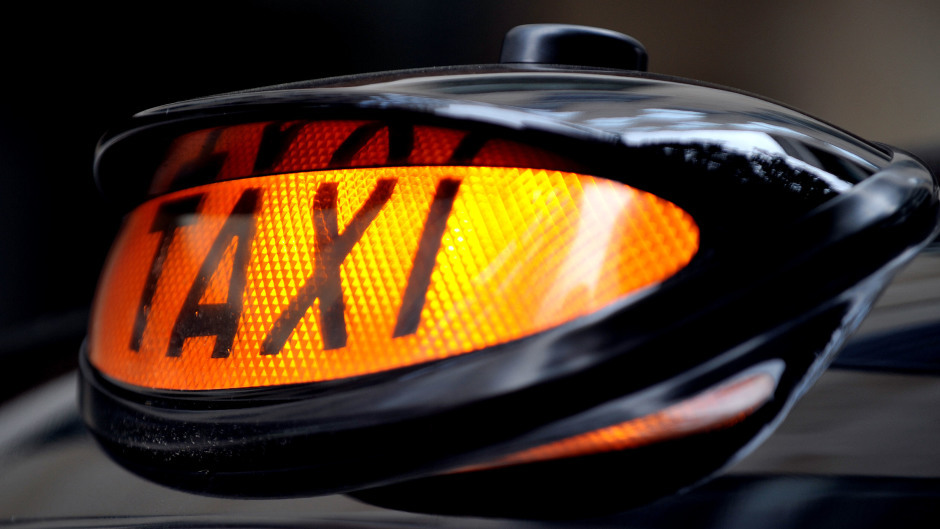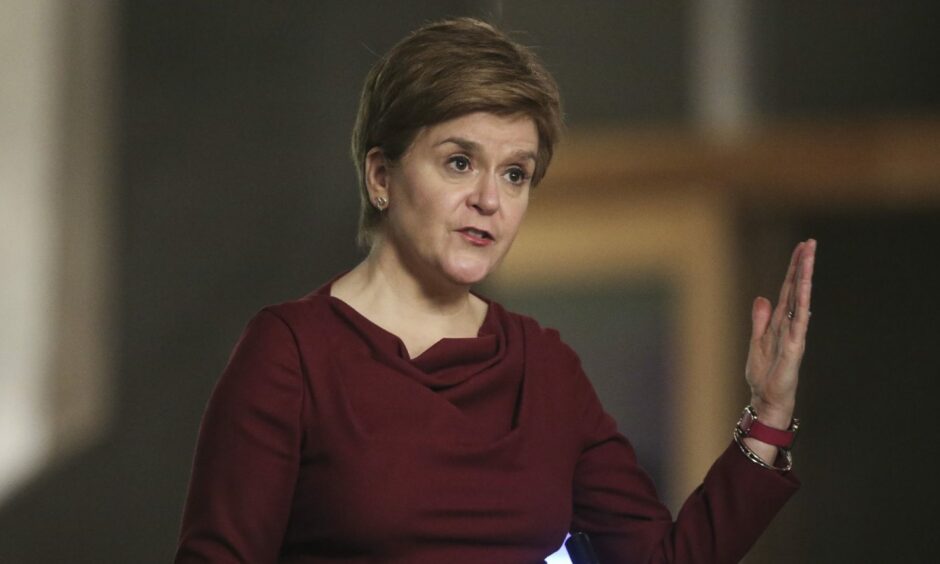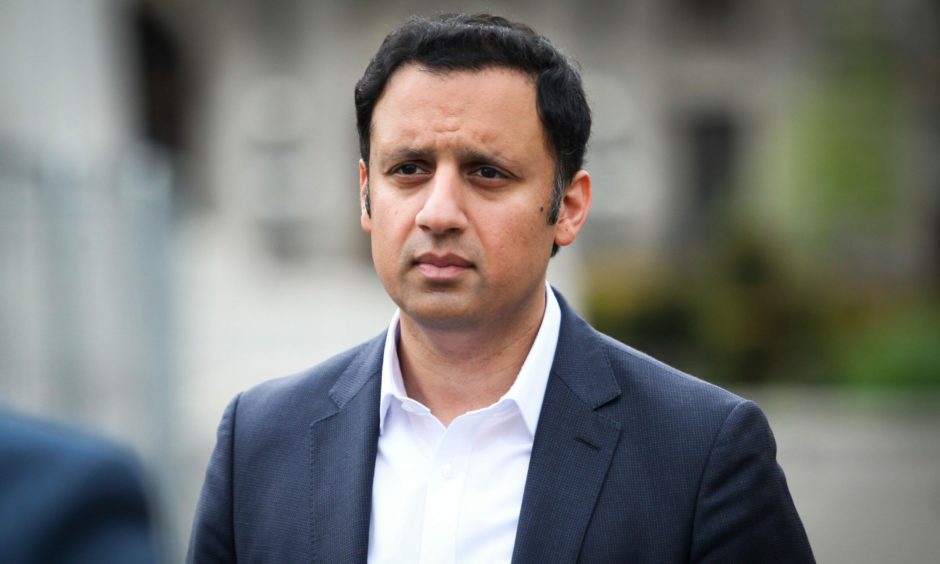First Minister Nicola Sturgeon has confirmed Covid self-isolation rules in Scotland can be reduced to seven days – as long as people don’t have a fever and record two negative lateral flow results.
The new rules were confirmed in the Scottish Parliament after Ms Sturgeon said it was not “sustainable” to live under measures which “restrict our lives indefinitely”.
However, the first minister still warned the NHS remained under “significant additional pressure” amid estimates from the Office of National Statistics that one in 20 Scots had Covid last week.
Other changes to self-isolation rules include ending the need for close contacts of positive cases to self-isolate as long as they are triple jabbed.
And the need for PCR tests to confirm positive lateral flow results will also end – with all changes to come into effect from midnight on Wednesday.
‘We are not giving up trying to control Covid’
Current rules on limiting large gatherings and mandatory table service in hospitality venues are expected to remain in force until January.
And Ms Sturgeon stressed that changing the Covid self-isolation rules in Scotland was not a sign that the government was “giving up” on controlling the virus – stressing hospital cases had risen by 80% to 1,223 in the last week.
Daily Covid cases on Wednesday also stood at 16,103 with warnings from the first minister the virus was now more widespread at any stage during the pandemic with totals likely to rise in the coming days.
She added: “With a variant as infectious as Omicron, the kind of protections that are still possible within our financial resources and without causing greater harm in other ways – while still very important at this stage – won’t control the transmission to the same extend as they would have with other variants.
“So in light of this, coupled with the fact that Covid won’t suddenly disappear and that Omicron is unlikely to be the last new variant we encounter, we need to continue to adapt our thinking about how to manage the virus and become more resilient to it in future.
“Let me be clear this does not, in my view, mean giving up trying to control it at all – the impact of Covid on individual health and on our collective wellbeing is too significant for that.”
The CBI (Confederation of British Industry) has welcomed the reduction of self-isolation days in Scotland as a “pragmatic choice to keep the economy moving”.
However, the body has called on work to be done to ensure people can get their hands on lateral flow test kits when needed.
Chief policy director Matthew Fell said: “Mass lateral flow testing will continue to be a vital tool in the months ahead as we learn to live with the virus and its variants, so it’s vital that the UK Government both tackles the current supply challenges and extends its commitment to keeping testing free beyond March 2022.”
What are the new Covid self-isolation and testing rules?
- Self-isolation periods to reduce from 10 to seven days as long as two negative lateral flow tests are recorded with one no earlier than sixth day after testing positive and another 24 hours later.
- Close contacts of positive cases, including in same household, no longer have to self-isolate as long as they are triple jabbed.
- Anyone who is a close contact and is over 18 will still have to self-isolate and take PCR test if not fully vaccinated.
- If lateral flow test (LFT) is positive with no symptoms then no longer need to take PCR test but LFT result must be reported online to allow contact tracing to take place.
- Advice remains to have PCR test after positive LFT result if showing Covid symptoms.
In hospital with Covid or because of Covid?
Both main opposition leaders Douglas Ross and Anas Sarwar welcomed the changes to self-isolation and Covid testing rules in Scotland.
Both the Scottish Conservative leader and Scottish Labour leader called on data to be published showing a distinction between patients in hospital solely due to their Covid infection or those admitted for another reason, who also happen to have tested positive.
The first minister said the first results of an analysis examining the distinction would be published on Friday.
However, she warned it could be dangerous to “oversimplify” and “overstate” the issue – stressing that infection control measures reduced hospital capacities and added pressure to the NHS regardless of whether Covid was the main reason for their admission or not.
But, Mr Sarwar said: “Nobody is questioning whether having a patient with Covid impacts on hospital capacity.
“But what it does impact on is how people think about how dangerous this variant is to them, their life and loved ones.
“So, levels of hospitalisations and those in intensive care due to the Covid outbreak is really significant and why people are measuring how people them restrict their lives and the impact it then has on businesses.”
Extra Covid business support confirmed
The first minister confirmed a further £55million of the £375million of Covid business support already announced has also been allocated to industries – taking the total to £255million.
Sectors in Scotland have been struggling to cope for weeks due to increased staff absences after testing positive for Covid or due to them following self-isolation rules.

Meanwhile, restrictions have also been applied to the hospitality industry and events sector to limit social interactions and large gatherings.
- £28million – taxi and private hire operators
- £19million – beauticians and hairdressers
- £5million – sport
- £3million – tourism
The Scottish Chambers of Commerce have welcomed the changes being made to self-isolation rules but warned the funding allocations “still falls considerably” short of the losses incurred by businesses during the festive season.
Chief Executive Liz Cameron said: “It’s vital that the Scottish Government and local authority partners now keep their foot on the accelerator to ensure that financial support is paid out as a matter of urgency.
“Scotland’s businesses need to see restrictions lifted as soon as possible and we urge the Scottish Government to go further and faster in their removal as part of the next three-week review.”

